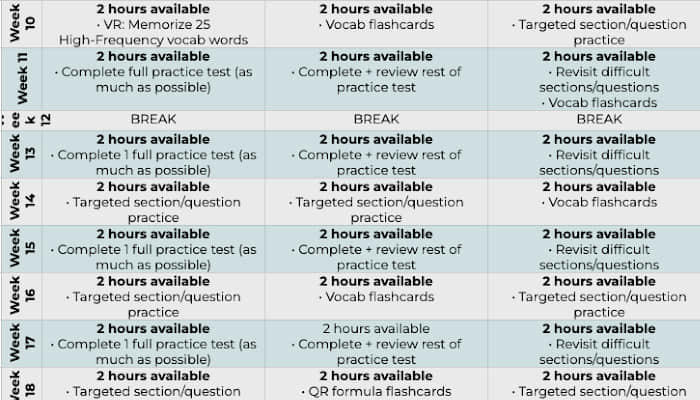Considering a GRE Prep Course: Is It Right for You?

Preparing for the GRE can be a daunting task, particularly for those setting their sights on graduate school. As aspiring students navigate through late-night study sessions and the pressures of exam readiness, testing companies present GRE prep courses as tailored solutions to conquer this challenging hurdle. However, these courses require a significant investment of both finances and time. So, the question remains: is enrolling in a GRE prep course truly beneficial? Let's explore the merits, and drawbacks, and how to determine if it align with your goals.
Pros of GRE Prep Courses
Insight into Exam Structure
GRE prep courses provide a comprehensive breakdown of the exam format, including the types of questions, time limits, and scoring criteria. This understanding helps students approach the test with confidence and strategic preparation.
Identifying Strengths and Weaknesses
Through diagnostic tests and ongoing assessments, prep courses offer personalized feedback. This analysis helps students identify specific areas where they excel and pinpoint weaknesses that require focused improvement.
Test-Taking Strategies
Experienced instructors teach effective strategies for managing time during the exam and choosing the best answers under pressure. Techniques such as strategic guessing and systematic elimination of incorrect choices enhance test performance.
Expert Guidance
Skilled GRE instructors possess deep knowledge of the exam's nuances and frequently tested concepts. They guide students in navigating tricky questions, understanding complex topics, and avoiding common pitfalls that can lower scores.
Group Learning Dynamics

Collaborative study environments in prep courses foster interactive discussions and peer learning. Students benefit from diverse perspectives, collective problem-solving, and shared motivation, enhancing overall comprehension and retention of GRE content.
External Motivation
Enrolling in a structured course creates external accountability and motivation. The commitment to classmates and instructors encourages students to maintain a consistent study schedule and strive for continuous improvement throughout the preparation period.
Error Analysis
Prep courses include detailed analysis of practice test results and mistakes made during simulations. Understanding the reasons behind errors helps students develop effective study strategies and refine their approach to similar questions in future practice sessions.
Individualized Support
Some GRE prep programs offer personalized attention from instructors. This one-on-one interaction allows for tailored guidance, addressing specific learning needs, and providing additional clarification on challenging topics.
Consistent Study Routine
Structured schedules and assignments in prep courses prevent procrastination and last-minute cramming. Consistent study habits ensure thorough coverage of GRE content over time, reducing stress and enhancing long-term retention of key concepts.
Cons of GRE Prep Courses
Costly Investment
GRE prep courses, especially classroom-based ones, can be a significant financial commitment, often averaging around $1,000 or more. This cost includes tuition fees, study materials, and sometimes additional resources like practice tests or specialized tutoring sessions.
Quality of Instruction
The effectiveness of a GRE prep course heavily relies on the expertise and teaching abilities of the instructor. While many instructors are highly qualified, the quality of instruction can vary based on factors such as experience, teaching style, and familiarity with current GRE trends and updates.
Group Setting Challenges
Classroom-based GRE courses typically involve group learning environments. While collaborative study can be beneficial for some, not everyone thrives in such settings. Distractions, differing learning paces among classmates, and personality dynamics can potentially hinder productivity and individual learning progress.
Alternative Resources
Despite the benefits of structured prep courses, there are numerous free or low-cost alternatives available. Online resources, such as websites, mobile apps, and digital study guides, offer comprehensive study materials, practice tests, and interactive tools. These resources may be sufficient for self-motivated learners who prefer independent study.
Time Intensive
GRE prep courses demand a significant time commitment both in-class and for homework assignments. Classroom sessions typically require attendance at scheduled times, and outside of class, students are expected to complete readings, practice exercises, and review materials extensively. This time-intensive nature can be challenging for individuals with busy schedules, such as full-time workers or students juggling multiple commitments.
Rigid Schedule

align well with the availability of all students. This rigidity can be challenging for individuals with irregular work hours, family responsibilities, or other commitments that prevent them from attending classes consistently.
Geographical Limitations
Access to high-quality GRE prep courses may be limited based on geographical location. Not all areas have convenient access to reputable institutions offering comprehensive GRE preparation. This limitation can force students to consider travel or relocation, adding to the overall cost and inconvenience.
Is a GRE Prep Course Right for You?
Before committing to a prep course, assess your readiness with a GRE study guide or practice test. A diagnostic test will reveal your strengths and weaknesses, guiding your decision.
If self-study proves effective and you feel confident in your skills, a prep course may not be necessary. However, if you identify gaps in your preparation or struggle with test-taking strategies, exploring available prep courses could be beneficial.
Ultimately, the choice between self-study and a GRE prep course rests on your learning style, schedule flexibility, and financial considerations. Consider these factors to make an informed decision that aligns with your academic goals and personal circumstances.
